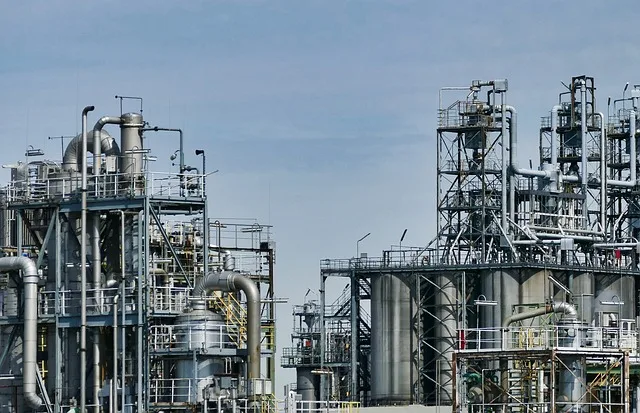Industrial chemicals are a cornerstone of modern manufacturing, production, and processing industries. They are specially formulated substances used to drive reactions, facilitate processes, and create products across numerous sectors such as agriculture, pharmaceuticals, construction, and more. Understanding industrial chemicals, their uses, and their safety implications is crucial for businesses looking to optimize production and stay compliant with environmental and safety regulations.
What Are Industrial Chemicals?
Industrial chemicals encompass a wide range of compounds used in various industrial processes. These chemicals include acids, bases, solvents, oxidizers, and specialty chemicals that contribute to the manufacturing, treatment, and finishing of materials. While some are naturally occurring substances, many are synthesized to have unique properties suited to industrial applications.

Common Types of Industrial Chemicals
- Acids and bases:
- Acids like sulfuric acid, hydrochloric acid, and nitric acid are commonly used for etching, cleaning, and metal processing.
- Bases, such as sodium hydroxide and potassium hydroxide, play key roles in processes like pH adjustment, chemical synthesis, and material cleaning.
- Solvents:
- Solvents such as acetone, toluene, and ethanol are widely used to dissolve, extract, or suspend materials. They are essential in industries like paints, coatings, pharmaceuticals, and chemical manufacturing.
- Oxidizing Agents:
- Powerful chemicals like hydrogen peroxide, potassium permanganate, and Caluanie Muelear Oxidize are used for reactions that require an increase in oxygen content, which can assist in cleaning, bleaching, and even metal processing.
- Specialty Chemicals:
- Specialist chemicals are formulated for specific applications and often include polymers, adhesives, lubricants, and surfactants. They are tailored to specific industry needs, such as enhancing performance, efficiency, or safety in processes.
- Biocides and Preservatives:
- Used to prevent microbial growth, these chemicals are essential in water treatment, cosmetics, food processing, and agriculture. Examples include chlorine, isothiazolinones, and formaldehyde-based compounds.
Uses of Industrial Chemicals Across Sectors
- Manufacturing:
- Chemicals like adhesives, lubricants, and surfactants are essential in production lines to ensure smooth processes, efficient machinery, and product quality. Solvents are used extensively in manufacturing, especially in cleaning and preparing surfaces.
- Agriculture:
- Fertilizers, pesticides, and herbicides are key industrial chemicals that enhance crop growth and protect plants from pests. Nitrogen-based fertilizers and glyphosate are widely used to boost food production efficiency.
- Pharmaceuticals:
- The pharmaceutical industry relies on specialty chemicals for drug formulation, synthesis, and sterilization. These chemicals must meet strict purity standards and regulatory approvals to ensure they are safe for use.
- Construction:
- Cement, concrete, and other building materials require specific chemical additives to enhance durability, workability, and strength. Epoxies, sealants, and plasticizers are some of the essential construction chemicals.
- Water Treatment:
- Chemicals like chlorine, ozone, and flocculants are used to treat water, making it safe for drinking and industrial use. These chemicals help remove contaminants, adjust pH levels, and prevent corrosion in pipes.
The Role of Industrial Chemicals in Process Efficiency
Industrial chemicals significantly improve process efficiency and product quality. By enabling specific chemical reactions or enhancing physical properties, these chemicals allow industries to achieve desired outcomes more quickly and with less waste. For example:
- Caluanie Muelear Oxidize is used in metal processing to weaken tough metals, making them easier to cut, crush, and shape, which enhances productivity and reduces machinery wear.
- Catalysts like palladium and platinum are used in the petrochemical industry to speed up reactions, lowering energy requirements and increasing production yield.
Safety and Environmental Considerations
Using industrial chemicals comes with essential safety and environmental responsibilities. Many industrial chemicals can be hazardous if not handled properly, with risks such as:
- Health Hazards:
- Exposure to toxic chemicals like formaldehyde, benzene, and lead can lead to acute and chronic health issues. Proper safety measures, including personal protective equipment (PPE) and ventilation, are necessary to mitigate exposure.
- Environmental Impact:
- Mismanagement of industrial chemicals can lead to soil, water, and air pollution. For instance, the release of volatile organic compounds (VOCs) can contribute to air quality issues. Many industries follow regulations from agencies like the EPA and OSHA to ensure that chemical disposal is environmentally safe.
- Regulations and Compliance:
- Many industrial chemicals are subject to strict regulations to ensure safe handling, storage, and disposal. Compliance with standards like REACH (Registration, Evaluation, Authorization, and Restriction of Chemicals) and TSCA (Toxic Substances Control Act) is essential for companies to avoid fines and operate legally.
Emerging Trends in Industrial Chemicals
- Green Chemistry:
- Companies are increasingly adopting eco-friendly chemicals to reduce their environmental footprint. Green solvents, biodegradable lubricants, and renewable feedstock-based chemicals are gaining popularity.
- Innovation in Specialty Chemicals:
- Customization in industrial chemicals, especially for specialized applications, is on the rise. The development of high-performance adhesives, advanced coatings, and new polymer formulations reflects a growing need for tailored solutions.
- Digital and Automated Systems:
- Smart sensors and digital monitoring systems are becoming common in industrial chemical management, enabling real-time monitoring of chemical levels, temperatures, and safety conditions.
- Sustainability and Recycling:
- Recycling industrial chemicals or converting them into safer, reusable forms is another trend. For example, spent acids and solvents are treated and recycled, reducing the need for new raw materials.
Conclusion
Industrial chemicals are indispensable in today’s global economy, enabling efficient processes, high-quality products, and innovation across sectors. From manufacturing and agriculture to water treatment and construction, these chemicals play a fundamental role in industrial growth and technological advancement. However, safe handling and environmental responsibility are equally important to ensure sustainable development. Embracing eco-friendly practices, innovation in specialty chemicals, and adherence to safety protocols will help industries optimize chemical usage while safeguarding health and the environment.
Unlock the Power of Caluanie Muelear Oxidize for Industrial Excellence!
Are you looking for a way to enhance productivity, reduce equipment strain, and streamline your toughest industrial tasks? Caluanie Muelear Oxidize is the ultimate solution for industries that demand efficient, powerful, and reliable results. This versatile chemical is a game-changer for metal processing, recycling, and material handling, helping you achieve top-notch results with minimal effort.
Caluanie Muelear Oxidize is a potent oxidizing agent and high-performance solvent that delivers unmatched results in industrial applications. It simplifies the handling of materials like metals, ceramics, and other durable materials, enhancing efficiency in metal processing, reducing equipment wear and tear, improving material handling for recycling and extraction, and reducing labor intensity and time spent on tasks. Caluanie muelear oxidize also contributes to cost savings and increased productivity by making materials easier to handle. It is safe and easy to integrate into various industrial applications, ensuring safety without compromising performance. Investing in Caluanie Muelear Oxidize can transform your workflow and help you stay ahead in a competitive market. Order Caluanie Muelear Oxidize today to transform your workflow and elevate efficiency in your industry.
